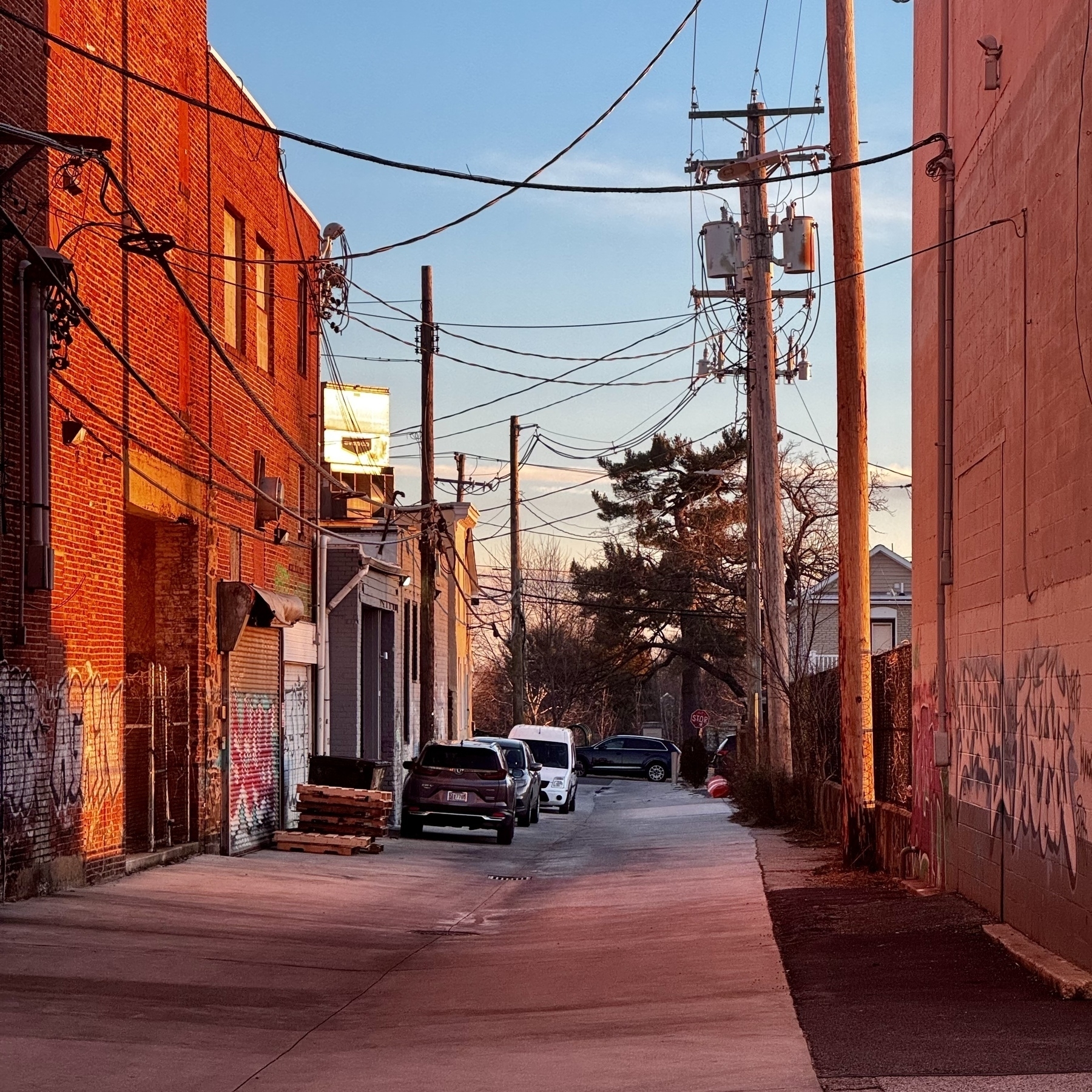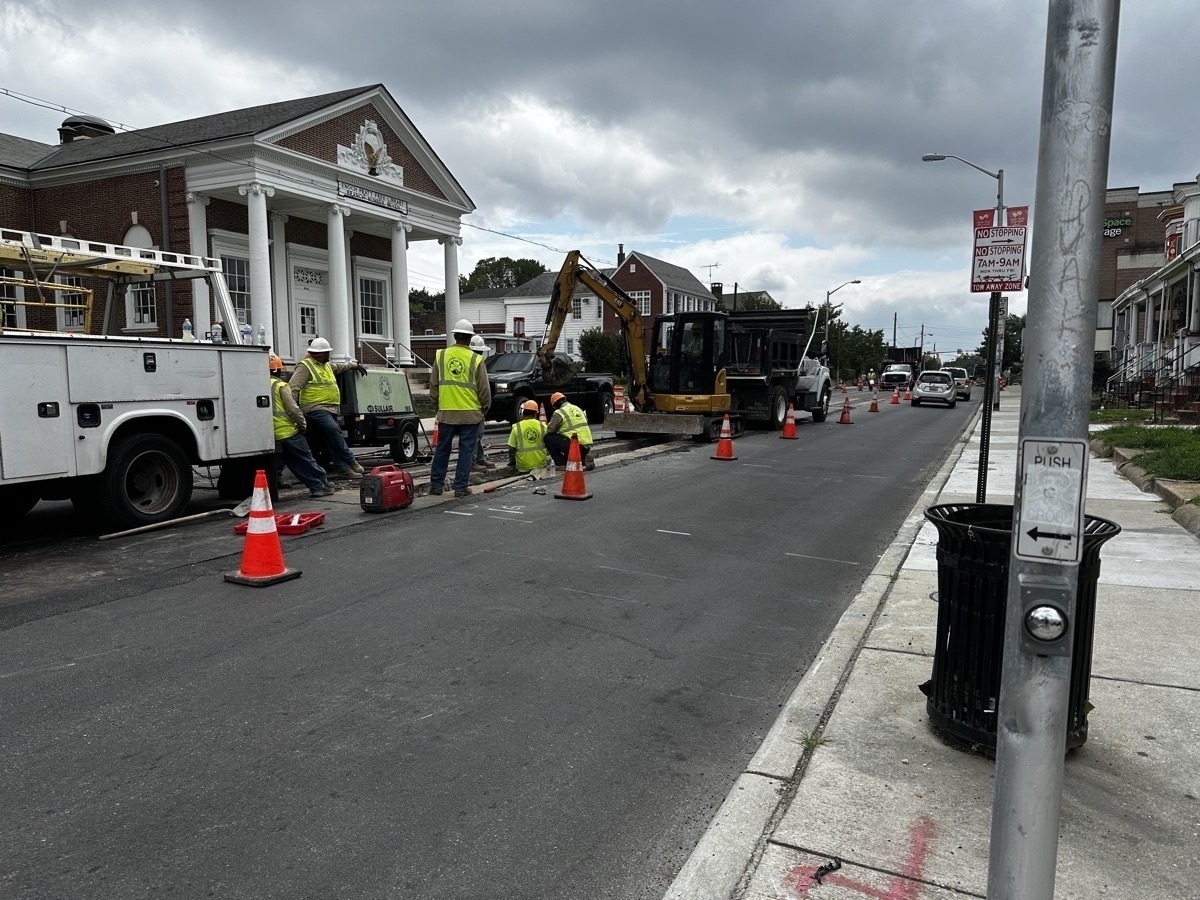Dear Jason,
I was in my thirties when the year 2000 came along, so I spent much of my childhood and young adulthood writing letters (phone calls being very expensive, and the proto-internet being unavailable to ordinary mortals). With phone calls, texts, and interactions on social media, communication is a constant back-and-forth. A letter is more like an essay. Yes, you are writing to someone else, but you can more fully unwind your thoughts without interruption. So I think the answer to whether one is having conversations with others or with oneself, when it comes to letters, is “yes.”
Letters are the one form of communication that allows you to finish your sentences. To communicate in paragraphs. And to ponder, over days or weeks, or longer even, what was said and what it sparks in you to say. I don’t think there really is a communications substitute for letters.
I love your comparison with pinning down a job description as being similar to describing the ocean as “blue.” I like the phrase “areas of responsibility,” as well. Perhaps as I get used to my new line of work, I will think of it in terms of areas of responsibility.
And this leads me to your questions about how to manage working with people who are going through serious challenges, while preserving my own soul; as well as shifting to being nondenominational, and what that has done to my tool kit.
The nondenominational aspect is actually more comfortable for me, just because my own personal and familial spiritual and religious background is pretty mixed. I think wisdom traditions like religions tend to hit on the same set of practices because we are all still human beings. I think the relationship of religion to the spiritual aspect of reality, is like the relationship of language to the physical aspect of reality. Religions are human-made modes for articulating and interacting with spiritual realities. So I’m “fluent” in some religious languages, and have a few little travel phrases with others. For patients who are connected with a faith community, my job is to support that, not undermine it. For patients who no longer feel connected to those traditions, or who want nothing to do with those traditions, we can often still do something like meditate together. At heart, I’m a pluralist. One of my favorite quotes from Frederick Buechner (?I think?) is that when it comes to the divine, we are like oysters at a ballet: we might dimly sense light and vibrations and movement, but we really don’t understand what’s going on.
Now, to soul preservation in emotionally intense environments… The rabbi, therapist, and organizational leadership theorist Edwin Friedman wrote brilliant and difficult books about leadership in congregations, based on family systems theory. I honestly think anyone who is in leadership anywhere, ought to read Friedman’s A Failure of Nerve: Leadership in the Age of the Quick Fix. It’s strange, provocative, filled with insights I haven’t seen elsewhere (so many pop culture leadership books are shallow or insular or both). I highlighted my first copy so much I had to buy another one.
It is nothing like any other leadership book I’ve read (and I have endured many). If you decide to read it, abandon your expectations and just experience it, like you would experience meeting a neighbor who was a true eccentric.
One of Friedman’s themes is the importance of self-differentiation for leaders, and how that affects the flow of anxiety through the group (whether it be family, congregation, company, whatever).
The core to healthy leadership in groups like congregations, which have high expectations of “meshing” emotionally with their leaders, and which also have high anxieties – is practicing self-differentiation, and practicing what Friedman called “non-anxious presence” (and what I, and many others call, less anxious presence). A leader who self-differentiates, who is non-anxious when others are anxious, can effect profound change in group dynamics over time. (I did it in my parish; it took several years.)
What does that mean in plain English? To my mind, it means that you know who you are, you know what you are about, you know what is yours to do, and you know what is not yours to do.
Can I be emotionally present with people who are anxious, grieving, in distress, without absorbing their pain and taking it with me to my next visit, or into my own soul? Friedman says, if we’re really intentional and practice a lot, we can self-differentiate and be a non-anxious presence maaaaybe 70% of the time.
I use what I call spiritual disciplines to train myself to self-differentiate, and to be a non-anxious (or less anxious) presence in emotionally difficult situations. Most of these practices might be called self-care practices in the secular world.
I keep a rule of life (what I call on one of my blogs a “personal framework,” because it doesn’t have to be religious), which I try to reread once a week to remind myself of what I am about, in this world. I journal, pray, and do what we jokingly call “speed yoga” each morning, I shut off my phone when the work day is over, I attend church (relaxing not to have to lead the service any more!), I get out for walks, I keep in touch with friends and family. I consider my home to be my sanctuary, and I make it a pleasant and relaxing place to be. I am getting serious again about practicing a real personal Sabbath, a day of rest from Friday night through Saturday. (And not what Eugene Peterson called a “bastardized Sabbath,” where I’m running around doing errands all day, which is what I fell back into.) I also use rituals.
It seems a number of people in hospice work use rituals. A nun I met who was also a chaplain would, when she was washing her hands between visits, envision all the sadness from the previous visit washing down the drain, so she didn’t take it to the next visit, or take it home with her. I know a social worker who discreetly wipes her feet on the mat before she goes in to a home (she is wiping away all of her assumptions and agenda, to be open to what will happen), and who wipes her feet (again, discreetly) as she leaves the house, so that that household’s problems stay there and don’t travel with her to other visits, or to her own home.
I ritually wipe my feet before I get in my car, and on a low stone in the alleyway before I walk into my house. I also ring a meditation bell three times at the end of each work day, which signals to me that my work is done for the day, and I need not think about it any more.
Rituals are fantastic. They communicate to the body as well as the mind, so you truly can let something go, and relax.
…And nobody likes to watch Young Frankenstein with my husband and me, because we quote along with the whole movie 😂
“Put… the candle…. BACK!”
A work trip to Jamaica? Wow, that sounds intriguing! Is this a conference? Have you been to Jamaica before? (I’ve never been, but would like to go.)
What do you do to balance your work life and your home life? How do you leave space and responsibility for YOUR soul (as you put it so well), with a job that can be done – as I am assuming – remotely?
Best regards,
Anna
Anna,
There is a practice in Judaism when returning from a funeral. Before entering your home, you perform a ritualistic washing of the hands. What is the purpose of this? Much of early Judaism was obsessed with purity. The mikveh was a central part of life. It could be seen as a public health measure to wash after being in the presence of remains. But I think it is not merely about physical or spiritual cleanliness. I think the washing is much like the rituals you encounter in hospice workers– we are meant to take a moment and ensure a separation. The funeral was then, our home will be now. The Hebrew word for “holy” means “separate”– that which is holy is separate and distinct; it is holy by being apart. The Sabbath is holy through separation from the rest of the week.
I think learning to be self-differentiated, to be separate, while not being distant is a challenge of leadership. We need to practice deep empathy without being overrun and controlled by it. Empathy doesn’t require that we absorb the anxieties of those we are leading. But the way most of us know how to practice empathy naturally leads to some… leakage. We need moments to flush and seal.
It could be worse, it could be raining.
This was my first time in Jamaica. We’re doing some work to help modernize their school financial management. Quite a lot is still run on paper. It’s a small project for now that might grow significantly. I got to spend some time in a a rural high school reviewing their systems and working with several government agencies. It was a wonderful learning experience and a real stretch for me to apply the skills and knowledge I’ve built up for over a decade in a completely different context.
I do work fully remotely. In this same job, which was always remote-friendly, I started remote, then moved to Baltimore and went into the office for a few years, and during/post-COVID we went fully remote. Remote work was much harder when I lived in Providence. First, we had a one bedroom apartment so my office was the bedroom. Second, I was flying to Baltimore 2-3 times a month in addition to my regular work travel. Things are much better now that we have a large enough house that I have my own office with a door to close.
But separation is still hard, because I work across all of the North American timezones and I’m a bit of a workaholic. So there’s a few things I have to do. For starters, I schedule all of my time at the gym (small group training, with 1 trainer to up to 6 people max) and volleyball each week. I find that if it’s on my calendar, I go. And physical activity is especially helpful for me to achieve separation. It’s hard to think about and be consumed by work while playing a team sport especially.
I struggle sometimes because my work is at a computer, and many of my hobbies are also at a computer. So I only read on my Kindle or with physical books– my iPad would lead me right back to work. I also struggle because I work with my best friend, which is mostly a blessing but occasionally can make it hard to disconnect from work stress and anxiety. Especially when something is big enough to impact us both, it’s a major support that neither of us can lean on because it’ll just lead to a bit of spiraling.
I aggressively use Apple’s new Focus Modes. I broadly let very few things notify me, but I let even less post 6pm or on weekends when I turn on “Down Time” – it hides all my apps for a few useful widgets and reduces who can reach me to just a handful of people. Otherwise, 6pm or weekends means I have to go seek something out for it to get my attention. I’ve found this quite helpful, even if I still impulsively open Slack a few times a day.
This weekend I went to a bar and magic show. One of the tricks involved guessing the super power that people wished they had. What super power have you always wanted? And more importantly, what is your actual super power? How did you discover it?
Jason




